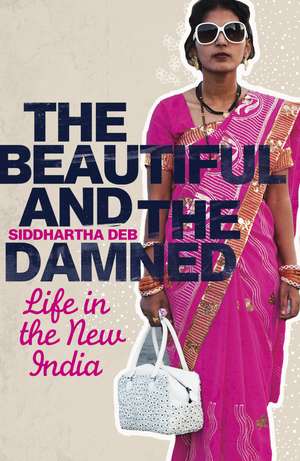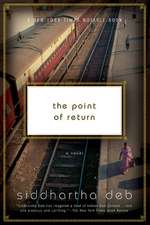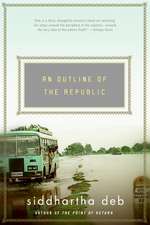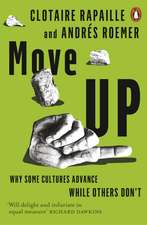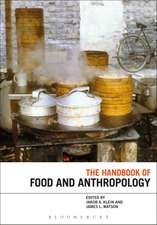The Beautiful and the Damned: Life in the New India
Autor Siddhartha Deben Limba Engleză Paperback – 29 feb 2012
The Beautiful and the Damnedexamines India's many contradictions through various individual and extraordinary perspectives. With lyrical and commanding prose, Deb introduces the reader to an unforgettable group of Indians, including a Gatsby-like mogul in Delhi whose hobby is producing big-budget gangster films that no one sees; a wiry, dusty farmer named Gopeti whose village is plagued by suicides and was the epicenter of a riot; and a sad-eyed waitress named Esther who has set aside her dual degrees in biochemistry and botany to serve Coca-Cola to arms dealers at an upscale hotel called Shangri La.
Like no other writer, Deb humanizes the post-globalization experience--its advantages, failures, and absurdities. India is a country where you take a nap and someone has stolen your job, where you buy a BMW but still have to idle for cows crossing your path. Available for the first time with the controversial and previously unpublished first chapter,The Beautiful and the Damnedis as important and incisive today as it was when it was first published.
| Toate formatele și edițiile | Preț | Express |
|---|---|---|
| Paperback (2) | 99.92 lei 6-8 săpt. | |
| Faber and Faber – 17 sep 2012 | 100.83 lei 3-5 săpt. | |
| Penguin Books – 29 feb 2012 | 99.92 lei 6-8 săpt. |
Preț: 99.92 lei
Nou
Puncte Express: 150
Preț estimativ în valută:
19.12€ • 20.45$ • 15.94£
19.12€ • 20.45$ • 15.94£
Carte tipărită la comandă
Livrare economică 18 aprilie-02 mai
Preluare comenzi: 021 569.72.76
Specificații
ISBN-13: 9780141033341
ISBN-10: 0141033347
Pagini: 272
Dimensiuni: 129 x 198 x 15 mm
Greutate: 0.2 kg
Editura: Penguin Books
Colecția Penguin
Locul publicării:London, United Kingdom
ISBN-10: 0141033347
Pagini: 272
Dimensiuni: 129 x 198 x 15 mm
Greutate: 0.2 kg
Editura: Penguin Books
Colecția Penguin
Locul publicării:London, United Kingdom
Notă biografică
Born
in
north-eastern
India
in
1970,
Siddhartha
Deb
is
the
author
of
two
novels.
A
contributing
editor
to
theNew
Republic,
Deb's
journalism,
essays
and
reviews
have
appeared
in
theGuardian,
theNew
York
Times,n+1,Caravan,
theNation,
theBafflerand
theTimes
Literary
Supplement.He
is
the
recipient
of
grants
and
fellowships
from
the
Society
of
Authors,
the
Radcliffe
Institute
of
Advanced
Studies
at
Harvard
University
and
the
Howard
Foundation
at
Brown
University.
Recenzii
There
is
a
nuance
to
even
the
direst
of
Deb's
pessimisms--an
acknowledgement
that
India's
lives
are
newly
precarious
precisely
because
they
could
swing
either
the
way
of
opportunity
or
the
way
of
ruin.
Siddhartha Deb is a marvelous participatory journalist, a keen observer of contemporary India. [ . . . ] Anyone wanting to understand contemporary India's glaring contradictions, its juxtapositions of glittering boomtowns with horrific slums, should read Deb's wonderfully researched and elegantly written account
[An] incisive new look at life on the subcontinent. [ . . . ] For those who have never been to India, the book will be an eye-opening read. For those more familiar with the country, it will be essential.
This brave book strikes a rare note - as a work of journalism and as an interpretation of India's maladies.The Beautiful and the Damneddigs beneath the self-congratulatory stories India tell itself - all the better to expose the stories it seeks to repress.
This is a brilliant and sensitive book that succeeds in shifting our gaze from the dazzling glass and steel towers of the business park to the collateral damage suffered by people caught in the age-old tensions between economic mirage, constricting cultural tradition and overbearing social expectation.
In his subtle, sometimes startlingly intelligent narrative, Deb is drawn to the idea of pretence, and to pretenders, of which he--writer, confidant, friend, provincial, global traveler--is one himself [ . . . ] In these pages, Deb is quickened by his extraordinary feeling for the texture of lower middle-class life, as well as his unerring sensitivity to the way a country yet again transforms itself.
A compelling read. The author's experience as a journalist ensures that he hardly wastes a word, his local knowledge gives him depth and empathy, while his status as a novelist seems to protect him from intrusive literary flourishes [ . . . ] Deb generally offers a shrewder, more humane perspective than most travelogues.
As a first-hand report, this is authentic, assured and absolutely engrossing, acutely pinpointing the aspirational tragic-comic ironies of modern India.
Siddhartha Deb is a marvelous participatory journalist, a keen observer of contemporary India. [ . . . ] Anyone wanting to understand contemporary India's glaring contradictions, its juxtapositions of glittering boomtowns with horrific slums, should read Deb's wonderfully researched and elegantly written account
[An] incisive new look at life on the subcontinent. [ . . . ] For those who have never been to India, the book will be an eye-opening read. For those more familiar with the country, it will be essential.
This brave book strikes a rare note - as a work of journalism and as an interpretation of India's maladies.The Beautiful and the Damneddigs beneath the self-congratulatory stories India tell itself - all the better to expose the stories it seeks to repress.
This is a brilliant and sensitive book that succeeds in shifting our gaze from the dazzling glass and steel towers of the business park to the collateral damage suffered by people caught in the age-old tensions between economic mirage, constricting cultural tradition and overbearing social expectation.
In his subtle, sometimes startlingly intelligent narrative, Deb is drawn to the idea of pretence, and to pretenders, of which he--writer, confidant, friend, provincial, global traveler--is one himself [ . . . ] In these pages, Deb is quickened by his extraordinary feeling for the texture of lower middle-class life, as well as his unerring sensitivity to the way a country yet again transforms itself.
A compelling read. The author's experience as a journalist ensures that he hardly wastes a word, his local knowledge gives him depth and empathy, while his status as a novelist seems to protect him from intrusive literary flourishes [ . . . ] Deb generally offers a shrewder, more humane perspective than most travelogues.
As a first-hand report, this is authentic, assured and absolutely engrossing, acutely pinpointing the aspirational tragic-comic ironies of modern India.
